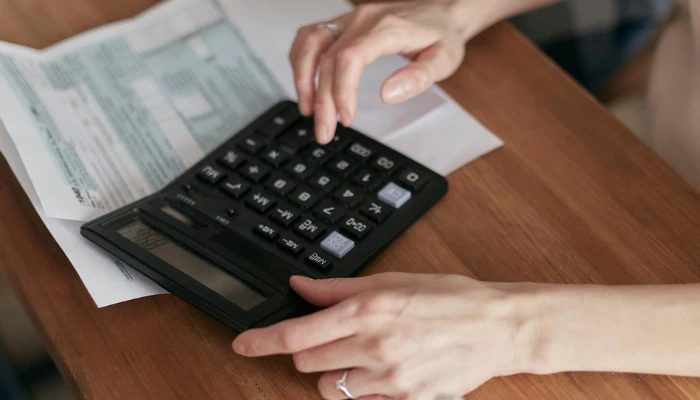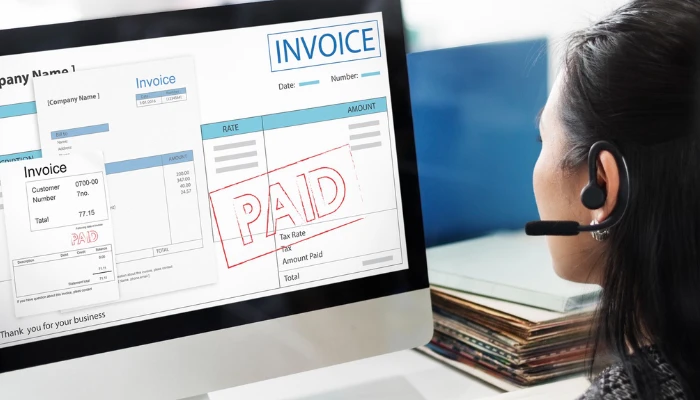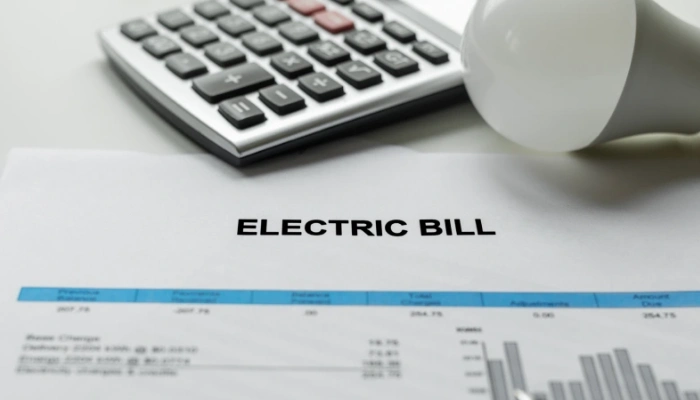Electricity and Telephone Bill Taxes in Pakistan in 2025
In 2025, the Government of Pakistan made some changes to electricity and telephone bill taxes that affect both households and businesses.
These changes are part of the country’s tax collection system and apply to almost everyone who uses electricity or telecommunication services.
In this blog, I will break down the electricity and telephone bill taxes, how to calculate income tax on electricity bills in Pakistan, and how they impact your monthly bills. So, let’s have an insight without wasting time
Want to Reduce Your Tax Burden?
Get expert tax consultation, hassle-free company registration, and complete compliance services, all in one place at Waystax.com.

Electricity Bill Taxes in 2025
Tax on electricity bill in Pakistan 2025 are charged differently for domestic (household) users and industrial (factory/business) users. The government has set tax brackets depending on your bill amount.
Let’s go step by step.
1. Domestic Users (Homes)
If you are a residential electricity consumer, here is how the tax works in 2025:
- If you are an active taxpayer (listed on the Active Taxpayers List or ATL), you usually don’t have to pay advance tax on your electricity bill.
- But if you are not on the ATL (a non-filer), and your monthly electricity bill is more than Rs. 25,000, you will have to pay a 7.5% tax on the full bill amount. This applies only to non-filers.
- To avoid this tax, residential customers can become active taxpayers and share their updated tax status with their electricity company.
For more information you can visit KESC , and other official sites.
2. Industrial Users (Factories and Large Businesses)
If you run a business that falls under the industrial category, your tax calculation is a bit different:
- Bill up to Rs. 500:
No tax. - Bill between Rs. 500 and Rs. 20,000:
You pay 10% tax on the amount above Rs. 500. - Bill above Rs. 20,000:
You pay Rs. 1,950 plus 5% tax on the amount exceeding Rs. 20,000.
Example: If your bill is Rs. 40,000, the excess over Rs. 20,000 is Rs. 20,000.
5% of Rs. 20,000 = Rs. 1,000.
Total tax = Rs. 1,950 + Rs. 1,000 = Rs. 2,950.
3. Electricity Duty Rates
Apart from income tax, there’s also electricity duty. This is charged as a percentage of your variable charges (the cost of the units you used).
- Domestic: Around 1%
- Commercial: Around 1.5%
- Industrial: Around 2%
This rate depends on your province and the category your meter is registered under.
4. Tariff Reduction in 2025
From July 1, 2025, the government reduced electricity prices for residential users by up to Rs. 1.16 per unit. This means if you are in a low usage slab, your bill will be a little lighter.
5. Current Electricity Tariff Slabs (2025)
Electricity prices depend on how many units you use in a month. Pakistan uses a slab system, which means the price per unit increases as your usage goes up.
Here is an example of residential slab rates:
| Units Consumed (per month) | Price per Unit (Rs.) | Category |
| 0 – 50 units | Rs. 3.95 | Protected lifeline |
| 51 – 100 units | Rs. 7.74 | Protected lifeline |
| Above 700 units | Rs. 47.69 (approx.) | Unprotected |
Protected lifeline users are those who use very little electricity and are given a lower rate to help reduce costs for low-income households.
6. Fixed Monthly Charges
Apart from the units you consume, there are also minimum fixed charges that you pay every month. These charges depend on your consumer category and are there even if your electricity usage is very low.
7. Further Tax and Extra Tax on Electricity Bills
For business owners, especially those renting their workplace, knowing about Further Tax and Extra Tax can help save a lot of money.
Why These Taxes Are Charged

- Further Tax (4%): Charged when the electricity provider sells to someone who is not registered for sales tax. This often happens if the meter is in your landlord’s name and they are not sales tax registered.
- Extra Tax (3%–5%): Charged in certain cases, usually when a commercial meter is used by an unregistered business.
Example: If your monthly bill is Rs. 1,000,000, you could be paying Rs. 40,000 in Further Tax and Rs. 50,000 in Extra Tax , over Rs. 1 million extra in a year.
How to Reduce or Remove These Taxes
- Register for Sales Tax: Make sure your business is registered and tax returns are up to date.
- Check Your Bills: If the meter is in your landlord’s name and they aren’t registered, this may be causing the charges.
- Apply to FBR: Submit an application to your Regional Tax Office with:
- Your NTN and Sales Tax Registration
- Proof of tax return filing
- Rental agreement details
- Copies of bills showing these taxes
- Get FBR Approval: If approved, FBR will instruct your electricity company to stop charging these taxes.
8. Advance Tax on Electricity Bills
- Active taxpayers usually don’t pay advance tax.
- You can get an Exemption Certificate from FBR if your income is tax-free or you have already paid advance tax for the year.
- If you are under the Final or Minimum Tax Regime, you may also be exempt.
9. Minimum vs Adjustable Tax
- For individuals:
- Bills up to Rs. 30,000/month → Tax is minimum tax (non-refundable).
- Bills over Rs. 30,000/month → Extra tax can be adjusted against yearly income tax.
- For companies:
- All electricity tax paid can be fully adjusted against the final tax bill.
Want to Reduce Your Electricity Bills?
Our experts at Waystax.com can review your bill for free to check if you’re paying extra taxes, and help you save more every month.

How to Get Your Electricity Tax Deduction Certificate in Pakistan
Electricity bills in Pakistan include different taxes collected by your electricity company for the Federal Board of Revenue (FBR). If you pay these taxes, you can claim them when filing your income tax return. But you need a Tax Deduction Certificate (also called a Certificate of Collection of Tax).
Let me explain two simple ways to get it.
Method 1: Through Your July Electricity Bill (Manual Way)
Every year, your July bill includes a summary of all the withholding tax collected from July to June of the previous financial year.
Steps:
- Keep your July bill safe (printed copy or PDF).
- Look for a section titled “Yearly Tax Collected” or “Total Income Tax Deducted”.
- Use this summary as proof when filing your tax return.
Drawback: If you lose your July bill, you won’t be able to use this method — that’s why the online method is better.
Method 2: Online (PITC Web Bill Service)
You can get your certificate online for any electricity company in Pakistan through the PITC Web Bill Service.
Steps:
- Visit: bill.pitc.com.pk
- Select Your Electricity Company (like IESCO, LESCO, MEPCO, etc.).
- Click “Check Bill” under your company name.
- Choose Search Type:
- Reference No. (14 digits, found on your bill)
- Customer ID (10 digits)
- If using Reference No., select “U” or “R” (mentioned on your bill).
- Enter the number and click “Search”.
- Your current bill will appear, click “Tax Certificate” in the top-right corner.
- Download or save the certificate. This will show all the taxes deducted for the last financial year.
Electric Companies Covered
This method works for all major electricity distribution companies in Pakistan:
- IESCO: Islamabad Electric Supply Company
- LESCO: Lahore Electric Supply Company
- FESCO: Faisalabad Electric Supply Company
- MEPCO: Multan Electric Power Company
- PESCO: Peshawar Electric Supply Company
- HESCO: Hyderabad Electric Supply Company
- SEPCO: Sukkur Electric Power Company
- GEPCO: Gujranwala Electric Power Company
- QESCO: Quetta Electric Supply Company
- TESCO: Tribal Electric Supply Company
Telephone Bill Taxes in 2025

In 2025, telephone and internet bills will also have advance income tax charged on them. This is collected under Section 236 of the Income Tax Ordinance, 2001.
1. Active vs. Non-Active Taxpayers
The tax rate depends on whether your name is on the Active Taxpayers List (ATL) or not.
- Active taxpayers: Lower tax rate.
- Non-active taxpayers: Higher tax rate, usually around 15% for telephone and internet bills.
Example: If your monthly telephone bill is Rs. 3,000 and you are not an active taxpayer, you might be charged around Rs. 450 in advance tax.
2. How the Tax is Collected
Telecommunication companies like Jazz, Zong, Telenor, Ufone, and PTCL automatically add this tax to your monthly bill. You will see it listed as Advance Income Tax or Withholding Tax.
3. Exemptions
Some people and organizations are exempt from paying this tax, such as:
- Government bodies
- Foreign diplomats
- People or companies that have been given tax exemption certificates by the Federal Board of Revenue (FBR)
Why Electricity & Telephone Bill Taxes Matter for You?
For most households and businesses, these taxes can make a big difference in monthly expenses. If your electricity usage is high or you run a business with heavy power consumption, the amount you pay in taxes can be significant.
For telephone bills, being an active taxpayer can reduce your tax burden. So, if you are regularly paying taxes, make sure your name is on the ATL to benefit from lower rates.
Tips to Reduce Your Utility Taxes
- Use electricity efficiently: Simple steps like switching off unnecessary lights, using energy-saving bulbs, and avoiding peak hours can help lower your bill and your tax amount.
- Stay on the Active Taxpayers List: This will lower the tax you pay on telephone and internet bills.
- Check your bill category: Make sure your electricity meter is correctly categorized (domestic, commercial, industrial). Sometimes, meters are incorrectly classified, leading to higher rates.
- Monitor your usage: Try to stay in a lower slab where possible to benefit from cheaper unit rates.
How much is the bill for 200 units of electricity in Pakistan?

For 200 units of electricity in Pakistan, it will be around Rs. 5,200–5,500 for unprotected domestic users, including fixed charges and taxes. Rates vary by region.
Final Words
In 2025, electricity and telephone bill taxes in Pakistan target high-usage consumers and businesses, while giving relief to households that use less.
Stay updated with the tax brackets and tariff slabs to help you understand your bill clearly and plan your usage wisely.
If you want exact calculations for your case, you should check official notifications from your electricity distribution company (like K-Electric, LESCO, IESCO) and FBR circulars.
Explore the Latest Tax Updates
Don’t miss important changes in Pakistan’s tax system. Visit our all News section to read easy, up-to-date articles on taxes, utility bills, and financial regulations.
Useful Resources
https://iesco.com.pk/index.php/customer-services/tariff-guide

